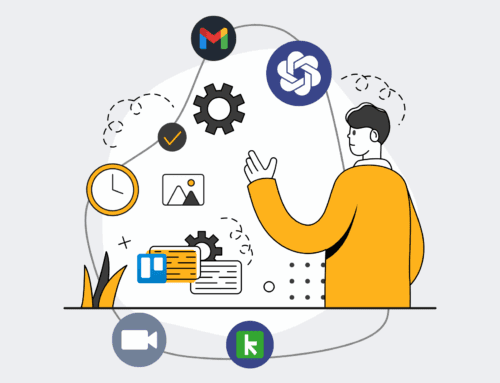Virtual Interview Scheduling: Best Practices for Remote Teams
In the evolving landscape of remote work, the virtual interview has become a cornerstone of talent acquisition. While offering unparalleled flexibility and access to a global talent pool, the logistical complexities of scheduling these interviews can quickly become a bottleneck, especially for fast-growing remote teams. Efficient virtual interview scheduling isn’t merely about finding an open slot; it’s about crafting a seamless, professional, and equitable experience that reflects positively on your organization and helps secure top talent.
At 4Spot Consulting, we understand that every touchpoint in the hiring process contributes to your brand and operational efficiency. Suboptimal scheduling practices can lead to candidate drop-offs, recruiter burnout, and a fragmented candidate experience. Mastering virtual interview scheduling is a strategic imperative for any remote team aiming for scalable and sustainable growth.
Establishing a Centralized, Automated Scheduling System
The foundation of effective virtual interview scheduling lies in a centralized and ideally automated system. Relying on manual email chains and calendar cross-referencing is a recipe for errors, delays, and frustration. A robust scheduling tool, integrated with your existing ATS and calendar, offers a singular source of truth for all interview activities.
Such a system should allow candidates to self-schedule within predefined availability, drastically reducing the back-and-forth communication. For remote teams spanning multiple time zones, this capability is invaluable, as it automatically accounts for geographical differences, presenting candidates with times in their local zone. Beyond mere availability, the system should also enable the automatic assignment of interviewers based on roles, skills, and current workloads, ensuring balanced distribution and preventing overbooking of key personnel.
Designing an Optimized Interview Workflow
Effective scheduling isn’t just about the tools; it’s about the process. Before implementing any technology, remote teams must meticulously design an optimized interview workflow. This involves clearly defining each stage of the interview process, from initial screen to final panel interview, and identifying the key stakeholders involved at each step.
Consider the sequence of interviews, the duration of each session, and the ideal time gap between stages. For example, a candidate might undergo an initial screen with an HR specialist, followed by a technical deep-dive with a team lead, and then a cultural fit interview with a panel. Each of these steps has specific scheduling requirements and interviewer assignments. Documenting these workflows ensures consistency and provides a clear blueprint for automation.
Communicating Clear Expectations and Preparation Guidelines
A smooth interview experience extends beyond just the booking itself. Remote candidates often face unique challenges, from ensuring stable internet connections to navigating different video conferencing platforms. Proactive communication is paramount.
Once an interview is scheduled, send automated confirmation emails that include all necessary details: date, time (with explicit mention of time zone), the video conferencing link, and clear instructions on how to join. Crucially, provide guidance on technical requirements, a point of contact for technical support, and what the candidate can expect during the interview. Offering a brief overview of the interview format and the key areas that will be discussed empowers candidates to prepare effectively, leading to more productive conversations. This also serves as an excellent opportunity to reiterate your company’s values and commitment to a positive candidate experience.
Ensuring Interviewer Preparedness and Availability
The best scheduling system is only as good as the input it receives. Interviewer preparedness is a critical, often overlooked, aspect of best practices. For remote teams, it’s essential that all interviewers understand their role, are familiar with the candidate’s resume, and have dedicated the necessary time without conflict. This requires a culture of discipline around calendar management and a commitment to the hiring process.
Automated reminders for interviewers, sent well in advance, can significantly reduce no-shows or last-minute rescheduling. Furthermore, implementing a feedback loop where interviewers can quickly submit their evaluations after each session is vital. This ensures that the momentum of the hiring process is maintained and allows for rapid decision-making, minimizing the time candidates spend waiting for next steps.
Leveraging Automation for Scalability and Candidate Experience
Ultimately, the goal of best practices in virtual interview scheduling for remote teams is to create a process that is both highly efficient and deeply human-centric. Automation, when applied thoughtfully, allows your HR and recruiting teams to focus on relationship building and strategic talent sourcing, rather than administrative overhead.
By automating the initial scheduling, reminders, and even pre-interview information delivery, organizations can provide a consistently professional and responsive experience, even when scaling rapidly. This not only reduces operational costs and human error but significantly enhances the candidate experience, which is increasingly a differentiator in a competitive talent market. A well-orchestrated virtual interview process ensures that every candidate feels valued, heard, and excited about the prospect of joining your remote team, solidifying your reputation as an employer of choice.
If you would like to read more, we recommend this article: Mastering Interview Automation: 10 AI Tools to Conquer Scheduling Chaos









